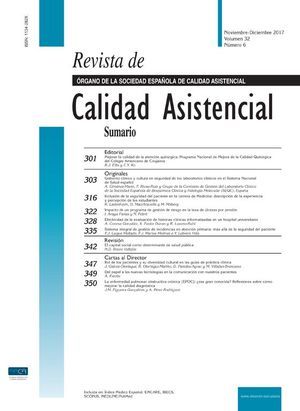Acute bronchiolitis is a common reason for admission to the pediatric emergency department. Evidence has shown that most interventions do not change the natural course of the disease.
Material and methodsThis study aimed to evaluate the economic impact of the non-compliance with the acute bronchiolitis Portuguese national guideline. A retrospective study of pediatric emergency episodes of a Portuguese hospital that had a diagnosis of acute bronchiolitis during 2019, was conducted.
ResultsThe sample included 344 emergency episodes. Non-compliance with the guideline occurred in 71.8% of the episodes, mostly due to unjustified treatment. Following guideline in the studied hospital for one year would have resulted in an estimated overall 76.6% cost reduction, with a reduction in mean direct costs per patient of 14.93 €, corresponding to a medium saving of 3.89 € for each patient and a reduction of 11.03 € for the Portuguese National Health Service. Analyzing the unjustified mean direct costs, of these 2.97 € were related to inpatient diagnostic tests and therapeutic and the remaining 11.96 € were related to outpatient therapy. Mean direct costs imputed to the patient for outpatient treatment represented only 3.31 €, therefore most of mean direct costs is paid by the National Health Service.
ConclusionsCompliance with guideline would allow the reduction of total estimated costs by about 76.6%, representing a waste of resources, without compromising the quality of care provided. Most of the cost associated with non-compliance with the guideline is justified by outpatient therapy, 67% of which was paid by the National Health Service.
La bronquiolitis aguda genera numerosos ingresos en urgencias pediátricas, y a pesar de que la mayoría de las intervenciones no alteran el curso natural de la enfermedad, suelen aplicarse tratamientos injustificados.
Material y métodosEste estudio retrospectivo evaluó el impacto económico del incumplimiento de la directriz clínica portuguesa para la bronquiolitis aguda en un hospital durante 2019.
ResultadosDe los 344 episodios estudiados, el 71,8% incumplió la guía, mayormente debido a tratamientos innecesarios. El seguimiento adecuado de la directriz habría reducido los costes totales en un 76,6%, con una disminución estimada de 14,93 € en los costes directos medios por paciente. Este ahorro medio de 3,89 € por paciente significaría una reducción de 11,03 € para el Servicio Nacional de Salud portugués. Analizando los costes no justificados, 2,97 € se relacionaron con pruebas diagnósticas y tratamiento en urgencias, mientras que los 11,96 € restantes correspondieron a terapia ambulatoria. Los costes directos medios imputados al paciente por tratamiento ambulatorio fueron solo 3,31 €, destacando que la mayoría de los costes directos son asumidos por el Servicio Nacional de Salud.
ConclusionesEn conclusión, el cumplimiento de la directriz clínica podría reducir significativamente los costes, evidenciando un despilfarro de recursos sin comprometer la calidad asistencial, con la terapia ambulatoria como principal contribuyente a los costes asociados al incumplimiento de la directriz.










